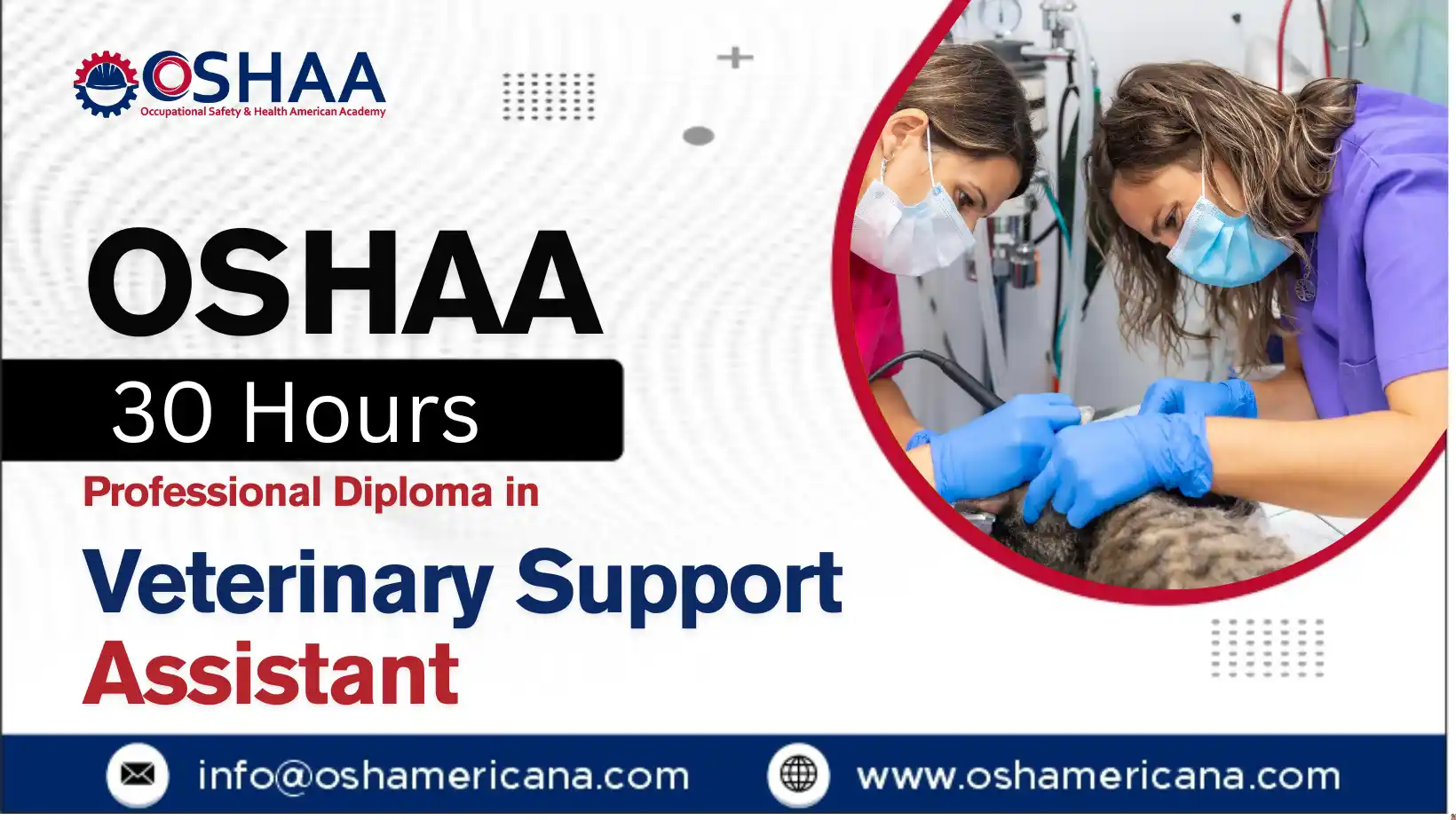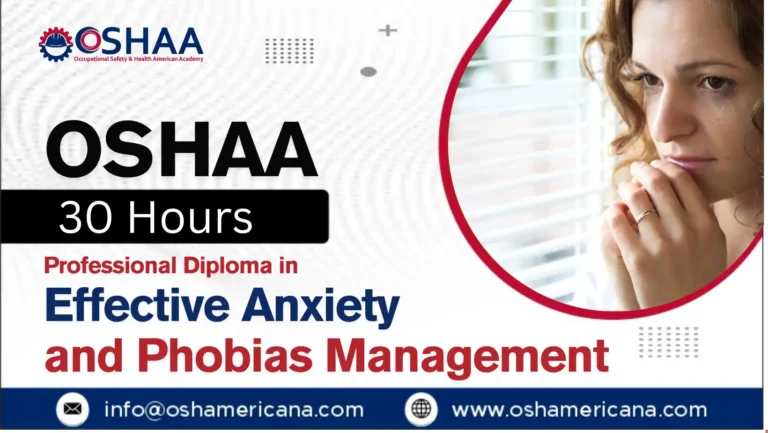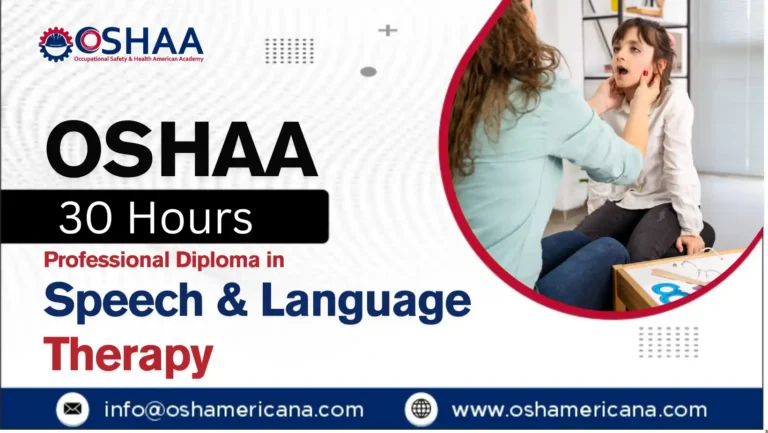Comprehensive in Veterinary Support Assistant – Hands-On Animal Care Training
Animals play an essential role in many people’s lives, and caring for their health and wellbeing requires trained and compassionate individuals. The OSHAA 30-Hours Professional Diploma in Veterinary Support Assistant has been developed to provide participants with the core knowledge and practical insight necessary to assist in veterinary environments. Whether working in a clinic, animal hospital, or rescue centre, participants will be well-equipped to support veterinary teams and contribute to high standards of animal care.
The veterinary support assistant is a key member of any animal care team. This role involves providing support during clinical procedures, maintaining hygiene standards, handling animals safely, and communicating with pet owners. With increasing demand for animal healthcare services, trained support staff are more essential than ever. This diploma offers participants a comprehensive introduction to the skills, responsibilities, and knowledge required for this vital role.
This 30-hour structured diploma covers the essentials of veterinary support work, including animal handling, infection control, record keeping, and communication. Participants will gain insight into the daily operations of veterinary practices and the welfare needs of animals in care. The course also introduces veterinary terminology, first aid principles, and ethical responsibilities related to animal health and treatment.
The OSHAA 30-Hours Professional Diploma in Veterinary Support Assistant offers an accessible route into the veterinary field, with content designed to be practical, relevant, and aligned with industry expectations. With a focus on real-world responsibilities and professional skills, this diploma provides the confidence and capability participants need to make a meaningful contribution to animal care.
OSHAA 30-Hours Professional Diploma in Veterinary Support Assistant
Study Units
Learning Outcomes
Introduction to the Veterinary Support Assistant Role (3 Hours)
- Understand the responsibilities and boundaries of the veterinary support assistant role
- Recognise the importance of professionalism, teamwork, and compassion in animal care
- Identify the types of veterinary settings and the role’s contribution to daily operations
- Understand the expectations for confidentiality, safety, and duty of care
Animal Anatomy, Physiology, and Health Indicators (4 Hours)
- Identify basic anatomical structures and physiological systems in common companion animals
- Recognise normal health indicators such as temperature, heart rate, and behaviour
- Understand the signs of illness, injury, or distress in animals
- Develop observational skills to support accurate reporting to veterinary professionals
Safe Animal Handling and Restraint Methods (4 Hours)
- Demonstrate safe and humane techniques for handling dogs, cats, and small mammals
- Understand species-specific behaviour and how to minimise animal stress
- Apply appropriate restraint methods during examinations and procedures
- Recognise warning signs of aggression or fear and respond accordingly
Hygiene, Infection Control, and Clinical Cleanliness (3 Hours)
- Understand the importance of hygiene and infection control in veterinary environments
- Learn cleaning protocols for equipment, kennels, and clinical areas
- Identify zoonotic diseases and how to prevent cross-contamination
- Follow appropriate procedures for waste disposal and personal protective equipment use
Veterinary Terminology and Common Procedures (6 Hours)
- Interpret commonly used veterinary terms and abbreviations
- Understand basic clinical procedures such as vaccinations, wound care, and temperature checks
- Identify instruments and equipment used during veterinary tasks
- Communicate clearly using appropriate terminology in written and spoken formats
Assisting in Consultations and Clinical Tasks (4 Hours)
- Prepare animals and equipment for clinical procedures under supervision
- Support veterinary staff during consultations, treatments, and examinations
- Monitor animal responses and report observations accurately
- Maintain calm and safe environments during stressful or emergency situations
Animal Nutrition, Feeding Practices, and Welfare (3 Hours)
- Understand dietary needs for different species and life stages
- Recognise signs of poor nutrition and dehydration
- Prepare and deliver feed in accordance with veterinary guidance
- Promote animal welfare through appropriate housing, enrichment, and routine care
Record Keeping, Stock Control, and Administrative Duties (3 Hours)
- Accurately complete basic medical records, appointment logs, and treatment charts
- Support the ordering and monitoring of clinical supplies and stock levels
- Maintain cleanliness and organisation in administrative areas
- Handle sensitive information in line with data protection and confidentiality standards
Course Benefits: OSHAA 30-Hours Professional Diploma in Veterinary Support Assistant
- Provides participants with a solid foundation in veterinary support, equipping them with the essential knowledge and skills needed to work confidently in animal care environments
- Enhances practical abilities in safe animal handling, hygiene maintenance, and clinical assistance, ensuring readiness for hands-on responsibilities
- Develops familiarity with veterinary terminology and routine procedures, improving communication and collaboration within professional teams
- Promotes understanding of animal anatomy, nutrition, welfare, and behaviour, supporting holistic and compassionate care
- Strengthens administrative and record-keeping skills vital for maintaining accurate veterinary practice operations
- Increases awareness of infection control protocols, zoonotic risks, and workplace safety to uphold clinical standards
- Builds confidence in interacting with clients, veterinary professionals, and animals in a calm and competent manner
- Offers a recognised qualification that improves employability in veterinary clinics, rescue centres, and pet care facilities
- Supports future progression into advanced training in veterinary nursing, animal management, or specialist care roles
- Encourages a professional, ethical, and animal-centred approach to veterinary support work, aligning with UK best practices in the sector
The OSHAA 30-Hours Professional Diploma in Veterinary Support Assistant is designed for participants who wish to begin or enhance a career in animal care and veterinary services. It is particularly suitable for:
- Individuals seeking entry-level roles in veterinary practices, animal shelters, or pet care facilities
- Participants aspiring to work alongside veterinary professionals in clinical or support roles
- Animal care workers, groomers, or kennel assistants aiming to broaden their knowledge and improve their qualifications
- Volunteers or part-time workers in animal rescue centres who want formal training in veterinary support
- Those considering further study in veterinary nursing, animal welfare, or animal science
- Participants passionate about animal health and welfare who want to contribute to high standards of care in professional environments
This course offers accessible, practical, and professionally recognised training for anyone committed to working with animals in a supportive and responsible capacity.







